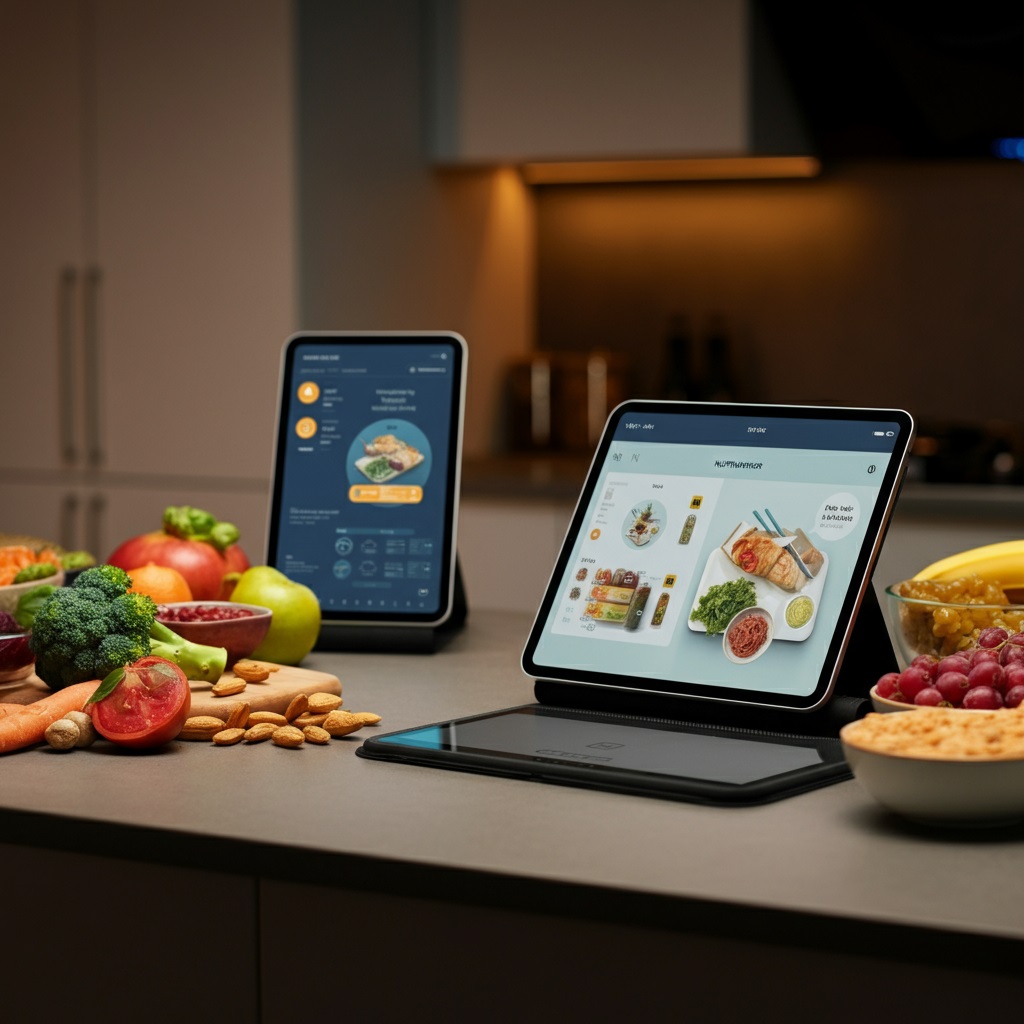Nutrition is more intelligent than ever. With advancements in artificial intelligence, smart kitchen gadgets, and personalized diet plans, technology is fundamentally reshaping how we think about food. From AI-driven meal planning to wearable calorie counters, the intersection of tech and nutrition offers exciting new ways to optimize our health and lifestyle.
This blog explores how AI nutrition apps, smart food tracking, and cutting-edge gadgets are making better eating habits more attainable for tech-savvy individuals and professionals.
Personalized Diet Plans Powered by AI
Gone are the days of one-size-fits-all diets. AI-powered apps are now leading the charge, bringing precision and customization to nutrition.
How it Works
AI nutrition apps like MyFitnessPal, Nutrino, and Lifesum use machine learning to analyze your eating habits, lifestyle, and even genetic markers to design diet plans tailored specifically to your needs.
Imagine an app telling you not just what foods to avoid but suggesting alternatives based on your goals—whether it’s weight loss, muscle gain, or managing a condition like diabetes. By continuously learning from your data, these tools make smart adjustments to your plan and help you stay on track.
Key Benefits
- Convenience: AI tools calculate portion sizes, calorie counts, and macronutrient breakdowns, saving you from doing the math.
- Science-backed insights: Based on global nutritional data and patterns, they suggest evidence-based plans.
- Flexibility: Adjust your diet in real-time based on progress, goals, and availability of specific groceries.
For example, with something like Nutrino, users get highly specific meal suggestions paired with monitoring features that account for sleep, exercise, and even stress. It’s not just a diet—it’s a lifestyle evolution.
Smart Food Tracking Devices for Real-Time Insights
Tracking nutrition isn’t just about logging meals. It’s about understanding the composition of what’s on your plate and how your body responds.
Wearables & Gadgets
Digital devices, such as Fitbit and Apple Watch, are evolving to track more than just steps and heart rate. With innovations like glucose-tracking patches and hydration sensors, these tech marvels now log in-depth nutritional data alongside physical activity.
Meanwhile, gadgets like SCiO molecular spectrometers (yes, handheld food scanners!) allow you to measure the nutrient content of meals. Gone are guesses—this tech tells you precisely how much protein, fat, carbs, or sugar is in your food.
Benefits of Real-Time Tracking
- Instant calorie and nutrient feedback.
- Integration with AI tools for comprehensive health reports.
- Smart alarms for timely hydration or reminding you to limit certain types of food.
One fascinating example is Lumen, a hand-held device that measures your metabolism in real-time by analyzing your breath. Based on its findings, it then tells you whether your body is using carbs or fats as its primary fuel source and recommends what to eat next.
AI-Driven Meal Planning & Grocery Shopping
Meal planning is often cited as one of the simplest ways to eat healthier. But for many, meal prep can feel time-consuming and overwhelming. That’s where AI steps in to make even meal planning tech-savvy and simple.
Smart Meal Planning
AI platforms like EatLove or Foodvisor don’t just give you recipes—they consider what you have in your fridge, your time constraints, and nutritional goals. The result? Detailed, step-by-step meal plans that adapt to your reality.
Smarter Grocery Lists
Sync your meals to apps like Whisk, and it will create smart grocery lists within seconds. Need dairy-free? Shopping on a budget? No problem. These AI-powered systems help filter groceries for things like affordability and dietary restrictions.
Better yet, some tools partner with local grocery stores to deliver ingredients directly to your door, so there’s no excuse to skip meal prep.
The Rise of Smart Kitchen Devices
Nutrition isn’t just about apps. Smart kitchen gadgets are helping us translate data into delicious, healthier meals.
Gadgets Leading the Way
- Smart Scales like the Etekcity Nutrition Scale help determine exact calorie and nutrient content down to the gram.
- Intelligent Microwaves such as Whirlpool’s connected appliance sync with AI meal plans and optimize heating based on food type.
- Smart Fridges (think Samsung Family Hub) offer alerts for expiring groceries and even pair recipes to what’s already in your refrigerator.
Why It Matters
These devices remove guesswork, increase precision, and make advanced nutritional tracking accessible. Plus, they integrate with smart assistants like Alexa or Google Home for a fully connected kitchen experience.
Read More👉 Boost Your Energy and Well-being with Vitamins and Minerals
The Future of Nutrition Tech
It’s not just gadgets or apps—technology is paving the way for a fully personalized and automated nutritional future. Here’s what’s next:
- AI-Powered Ingredient Substitutes: Tools like Yukka already scan product barcodes for nutritional quality, but the future lies in offering affordable, healthier substitutions in real time.
- DNA-Based Meal Plans: Companies like DNAfit are already analyzing genetic markers for developing even more precise diet recommendations. This will likely become a standard over time.
- Food Sustainability Tech: New AI-powered tools will prioritize environmentally-friendly ingredient swaps—making healthy eating better for the planet, too.
Where Will Technology Take Your Diet?
Technology has transformed everything from how we communicate to how we commute—and nutrition is no exception. AI nutrition apps, smart food tracking, and cutting-edge devices empower individuals and professionals to improve health outcomes effortlessly.
Whether you’re a health-conscious job seeker keeping pace with trends or a business professional optimizing performance through nutrition, smart eating powered by technology makes staying on top easier than ever.
If you’re ready to see how AI can revolutionize your nutritional habits, start by exploring some of the most popular AI-driven apps—or consider investing in a smart kitchen device to simplify meal prep for good. Health and tech have never paired better.

